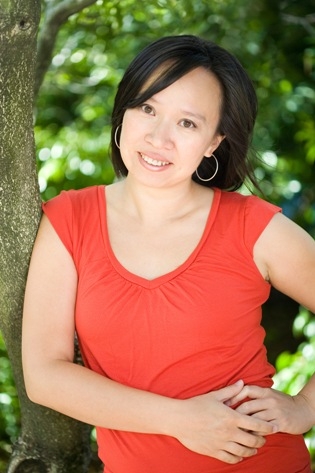Malinda Lo’s Huntress is a familiar and satisfying adventure story nestled within a truly diverse and nuanced fantasy world. There is a long journey through a magical Wood, a brave prince, an ice fortress, a pack of fairy huntsmen, and strength derived from the power of true love. The way these tropes are pushed and pulled in unexpected directions presents a story that is enjoyable, fresh and compelling.
The Fairy Queen, who lives in a city undocumented by any map, has called for the company of the King. He suspects it might be related to the eternal winter that is enveloping his kingdom, causing panic and starvation across the land. Seeking spiritual guidance, the sisterhood of Sages cast the oracle stones, which reveal that Kaede and Taisin, two seventeen year old students at the Academy of Sages, are the chosen ones to save the kingdom. The girls will make the journey in his place, accompanied by the king’s son and several trusted guards.
Taisin is a truly gifted student and seer, who has dedicated her life to becoming a Sage. She has visions, can perform sacred rituals, and is keenly attuned to the energies around her. Kaede, on the other hand, our reluctant hero, never felt like she fit in at school, but as the daughter of the king’s head Chancellor, must conform to expectations of her influential family. Her decision to embark on the journey is part rebellion against her father’s desire to betroth her for a political alliance, disregarding her wishes and her absent romantic interest in men.
Lo’s writing style smoothly eases you into her fantasy world. As the travelers continue on the road, encountering hardship and strange creatures, moving toward a distant unknown, Lo explores subtleties that add intrigue and ambiguity to the fairly conventional story line. Natural-sounding dialogue and lush descriptions allude to a vaguely Asian land, full of magic and energy. Huntress is infused with wide-ranging Asian influences, from references to the Book of Changes (I Ching), to descriptions of characters’ physical features and the foods they eat.

Lo is a sculptor of scenes. She starts with a general idea and carves out the details. Reading her is seeing a blurry shot of cinematography come into focus. Objects are imbued with motion, and hold much energy: “She woke later that night to hear voices -- despairing, yearning voices. She felt fingers running along her arm, touching her. If the wind could form itself into hands, that was what it felt like. She went rigid with fear, goose bumps rising all over her body.”
Just as energies flow and are shared between people, creating tangible connections, the narrative voice weaves in and out of the different characters’ minds, providing an artful mix of what they are all going through. Though Kaede is our main source, the reader gets the sense of each character’s own journey.
A weakness, however, lies in the pacing of the novel. The road travel occupies almost two thirds of the novel; which gives Lo the room to create slow and thoughtful moods, believably develop the romance between the two girls, as well as Kaede’s transformation into a skilled huntress. But, by the time the real action happens, when the travelers confront death and more sinister magical powers at hand, it becomes a plot-driven effort at resolution, and they are no longer afforded the precious moments of reflection toward self-discovery.
Huntress is a companion novel to Lo’s debut novel Ash, taking place in the same world but several centuries earlier. Huntress is not a “coming out” story, nor does race actively affect the plot of the story. Taisin’s only hesitancy about a relationship with Kaede is that it violates the rules of celibacy that she must obey in order to become a Sage. The representation of lesbian love and diversity bring a fascinating texture to the young adult fantasy novel, showing how magic, adventure, and bravery are open and accessible to all.
Nicole Wong is a contributing editor at Hyphen.










Comments